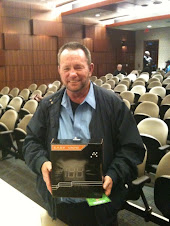City would limit growers to industrial areas.
Southfield's City Council is to vote Tuesday JANUARY 25, 2011 on strict zoning proposals that limit medical marijuana growing areas to light industrial districts, as communities statewide struggle to comply with the state's medical marijuana law.
"Some communities have taken a prohibition approach," said Southfield Planning Director Terry Croad. "Anybody who's got a moratorium has a wait-and-see approach. We're recommending a regulatory approach."
Council members are to vote at 7 p.m. at City Hall.
Cities have created zoning proposals, laws, moratoriums and outright bans since Michigan voters passed the Medical Marijuana Act in 2008. The law allows those with medical conditions to use marijuana and caregivers to grow up to 12 plants each for themselves and five patients.
Lawsuits are pending in Wayne County Circuit Court that were filed by the American Civil Liberties Union of Michigan to challenge bans on medical marijuana in Birmingham, Bloomfield Hills and Livonia. Bloomfield Township was sued in December after passing an ordinance that prohibits growing marijuana and requires users to register with police.
On Jan. 10, the Farmington Hills City Council tabled its regulations that allow personal medical marijuana use in residents' own homes. The regulations use land use guidelines to curb commercial medical marijuana transactions in the city, essentially forbidding compassion clubs and dispensaries.
Council members said they wanted to study a Grand Rapids ordinance that allows medical marijuana growing as a home occupation in which the caregiver delivers the marijuana.
"There are some communities that said, 'Hey, our people voted for this; we've got to do it,' " said Phil McKenna, president of McKenna Associates, a municipal planning firm working with more than two dozen Michigan communities on medical marijuana laws. "And there are others that are saying, 'What we voted for isn't what we're getting.' I think there's a lot of confusion out there."
Southfield's guidelines propose locating caregiver growing operations in five light industrial districts. The businesses must be at least 200 feet from residential areas.
The city has 20 potential sites, Croad said.
ACLU of Michigan staff attorney Dan Korobkin said Friday that Southfield's law is too restrictive.
"I think having so few areas you can do that, and making it so you have to open up a business, means you're placing unreasonable regulations on caregivers," Korobkin said.
Longtime Southfield City Councilman Sidney Lantz opposes the regulations and said he thinks the proposal allows the city to grant waivers for operations outside the zones -- a point of disagreement with Mayor Brenda Lawrence.
"I think it puts us in the position where we'll have control of it," Lawrence said. "It'll give the people the right they voted to have, and it will provide services for those who qualify for medical marijuana."
Thursday, January 20, 2011
Subscribe to:
Post Comments (Atom)


No comments:
Post a Comment